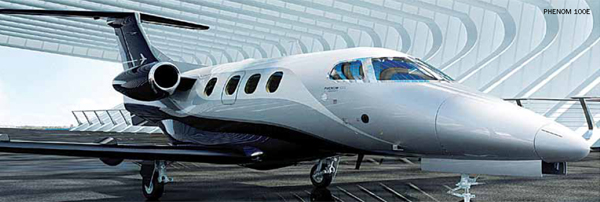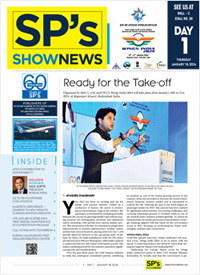- Prime Minister Narendra Modi inaugurates Aero India 2023 in Bengaluru; Releases Commemorative Stamp
- Defence Secretary meets delegations from Saudi Arabia, USA and Oman on the sidelines of Aero India 2023
- Foreign Ministers of 32 countries to attend Aero India 2023
- Embraer showcases the C-390 Millennium at Aero India 2023
Embraer Executive Jets Positive About India

With the Narendra Modi government at the Centre, Embraer Executive Jets is positive about prospects for the aviation industry. The market for business jets in India, as in the US, is likely to grow steadily, though not at high rates, but at healthy rates, according to Claudio Camelier, Vice President of Sales and Marketing, Asia Pacific and Middle East, Embraer Executive Jets.
On the eve of Aero India 2015, Camelier said “India is a country that has the widest portfolio of Embraer Executive Jets – from the Phenom 100E to the Lineage 1000 – with 20 jets in operation.” The aircraft in India are: one Lineage 1000; four Legacy 650; six Legacy 600 (including five VIP transport); one Phenom 300; six Pheonm 100/Phenom 100E; and two ERJ 135/shuttle.
The Phenom 300, he said, was the world’s most delivered business jets in 2013 and 2014. In the market it has over 310 Phenom 100 and over 240 Phenom 300. At Aero India, Embraer will be showcasing Phenom 300, belonging to Joy Alukkas Group. In the past five years, Embraer has had a good run to take the number one slot in marketshare at 35 per cent , followed by Bombardier at 26 per cent; Hawker Beechcraft (no longer in operation) 16 per cent; Dassault nine per cent; Cessna seven per cent; Gulfstream three per cent and others four per cent.
In Asia-Pacific region, the main markets were India, Indonesia and Australia, while there was considerable slow-down in China. India has 20 Embraer Executive Jets; Indonesia 28 (eight light and 20 large jets); China 21 (one light and 20 large jets) and Australia five (three light and two large jets). The point of concern for Embraer has been China where the company is assessing whether to hold on to its facility at Harbin (manufactures Legacy 650). “We have capacity in Brazil and we are still assessing the situation.”
Giving global figures of EEJ fleet deliveries, Camelier said from 2010 when it peaked to 145, there has been a slump. The deliveries for 2011 and 2012 were 99 each; 2013 – 119 and 2014 – 116. Indicating that there was slow recovery, he attributed several reasons for the offtake, one of them being too many preowned aircraft up for sale. The estimate was about 2000 aircraft of which nearly 500 would be aircraft less than 10 years old. The counter-challenge for the pre-owned market could be positioning new aircraft for its low maintenance; state-of-the art avionics; operational efficiency and other features. In countries like India, there were issues of infrastructure – no fixed based operators (FBOs), taxation and regulatory which were hampering offtake.
However, he said the company was hopeful of better prospects considering that India with an anticipated GDP growth rate of 6.7 per cent and China with 6.5 per cent will have a positive impact. The 2015-2024 market forecast was 9,250 units worldwide of all business jet aircraft and Asia Pacific would account for 570 aircraft and China 835 aircraft (in the hope that the economy will bounce back).





